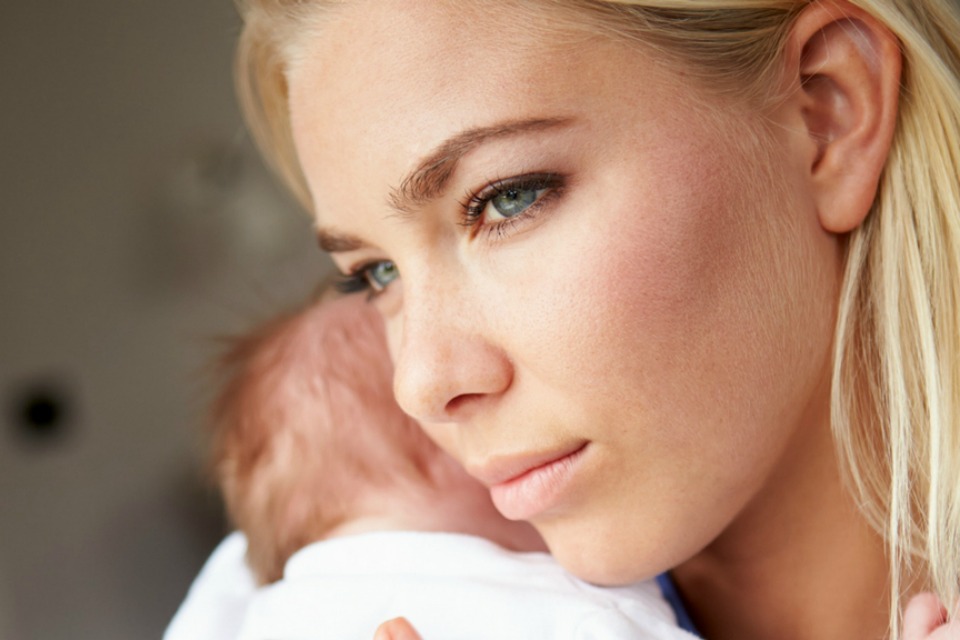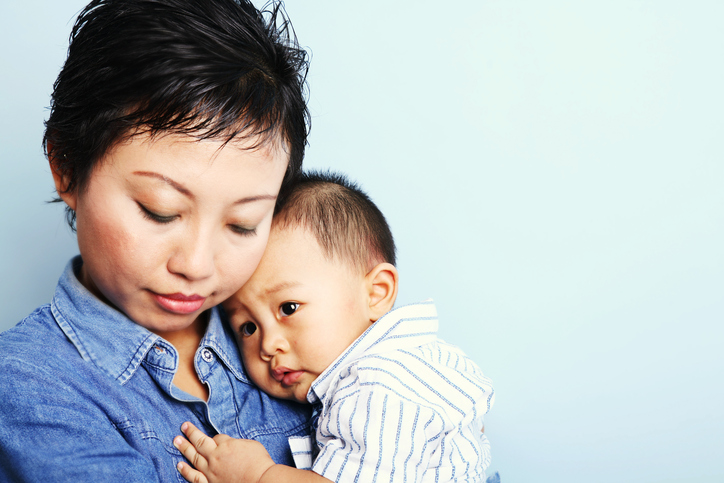10 signs you might have postnatal depression
Often we’re too busy to notice our friends might be suffering postnatal depression, but it’s important you know the symptoms because left untreated or unidentified it can cause mums to experience thoughts and behaviours that present a risk to her or her baby.

Could you or your friend be suffering from postnatal depression?
Postnatal depression (PND) isn’t a modern condition, back 50 years ago it was called a ‘nervous breakdown’ and sadly many women were sent to an asylum or hospitalised because of it.
It can be mild, moderate or severe and symptoms can begin suddenly after birth or appear gradually in the weeks or months during the first year after birth.
Some mums get it after their first birth, others after a third or fifth delivery. Often it happens with each baby sometimes only with one.
PND can happen after miscarriage or stillbirth, normal or traumatic delivery, or caesarean delivery, the one common factor is pregnancy.
What is postnatal depression?

According to the Black Dog Institute, postnatal depression (PND) describes the more severe or prolonged symptoms of depression that last more than a week or two and interfere with the ability to function on a daily basis with normal routines including caring for a baby.
Fact: It is important to note that PND is different from the baby blues that are common during the first week after childbirth.
For around one-in-seven women, the stresses and emotional changes that accompany their postnatal experiences can be intense and include strong depressive mood swings, anxiety, social withdrawal, irritability and loss of enjoyment in usual activities.
Postnatal disorders can interfere with the developing relationship between a mother and her baby after birth (bonding and attachment) and impose strains upon the relationship between the parents as well as causing distress for women themselves.
Signs your friend or family member might be suffering from post natal depression:
- They may no longer enjoy activities they used to love such as shopping, going to the beach or catching up for a coffee.
- You’ve noticed their self-esteem and confidence levels have plummeted.
- Their appetite has gone and they’ve lost a lot of weight without trying.
- You’ve noticed they are having broken sleep, irrespective of what their baby is doing.
- They appear to have a sense of hopelessness about everything.
- When you talk they often speak about being a failure as a mum or person.
- You’ve noticed they appear more subdued in social situations where they might usually thrive.
- They seem to be unusually panicky about situations or have panic attacks.
- They have talked about a lack of libido.
- When you chat they appear to have fears for their baby’s or partner’s safety or wellbeing.
Fact: Did you know there are two different types of PND and the symptoms vary between the different types and people respond best to different treatment approaches?
1. Non-melancholic depression
The most common form of PND and is linked more with psychosocial risk factors than genetic and biological causes.
These disorders do not have biological or melancholic features though the depression can still be severe. This type of depression is more likely to respond to psychological approaches to treatment although medication may also be used when symptoms are severe.
2. Melancholic depression
This is relatively uncommon, affects only 1-2 per cent of adults over their lifetime and usually a more severe form of depression that has a more distinct genetic and biological basis.
Someone who is predisposed to melancholic depression might have an episode of depression triggered by a stressful life event, for example a death in the family, but this is not usually the primary cause of their depression.
Melancholic depression responds best to medical treatment such as antidepressant medication, and is less responsive to counselling or psychotherapy although the latter should complement medical treatments. Medical assessment is required as this type of PND rarely goes away without medical treatment.
If you are experiencing any distressing symptoms that are causing you concern, your doctor, midwife, or child and family health nurse can provide you with assistance or arrange for you to see a specialist.
You can call the PANDA National Helpline on 1300 726 306 between 9am and 7.30pm AEST or visit their website here.
Sources: www.blackdoginstitute.org.au and www.panda.org.au

Join our community of supportive mums!
With hundreds of thousands of mums from all over Australia, all with the same goals, concerns, and struggles, our community is there to support you through it all.









